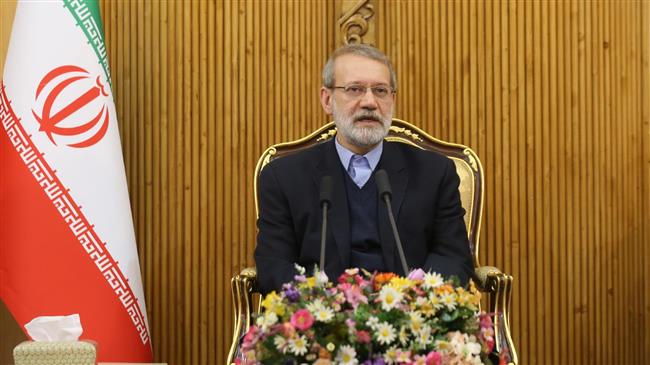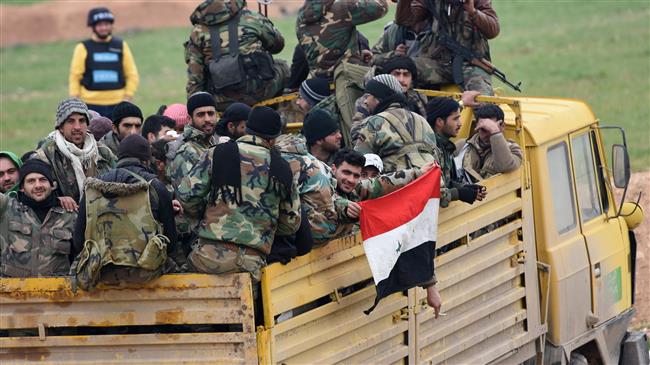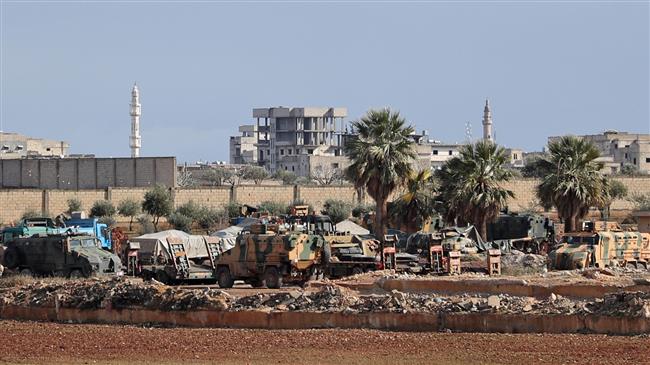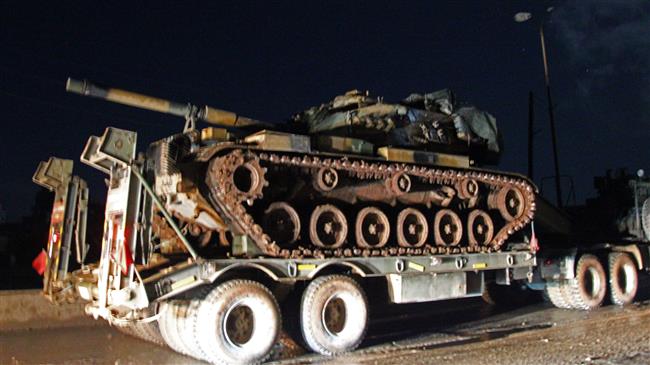Iran's parliament speaker heads to Syria amid Idlib operation
Iran's Parliament Speaker Ali Larijani has traveled to Syria as the Arab country is conducting a major operation to liberate the last terrorist-held bastion.
Larijani left Tehran for Damascus on Sunday morning. Speaking at Tehran's Mehrabad airport, he said his visit was taking place upon the invitation of his Syrian counterpart and that it had previously been postponed due to some developments.
Larijani described Syria as a friendly and brotherly country that is part of the "axis of resistance".
"Developments in Syria and the region call for close consultations between the countries that cooperate with each other," he said.
"Given the conspiracies in the region, we need closer consultation and solidarity on different issues," he added.
Idlib and small parts of the adjacent area in Aleppo form the only large territory in the hands of terrorists after the Syrian military managed to undo militant gains across the country and bring back almost all of Syrian soil under government control.
The Syrian army has been making steady advances in the past few weeks, liberating a strategic city and a key highway which connects Damascus to Aleppo.
The Syrian gains, however, have coincided with a massive deployment of troops and military equipment by Turkey which is evidently upset by changing conditions on the ground.
Turkish troops are deployed in terrorist-held areas in Idlib under a deal reached with Russia in 2018.
The deal called for the establishment of a de-militarized zone which required Turkey to oust Takfiri terrorists from the Syrian province. But, more than a year into the agreement, Takfiri terrorists rule supreme in Idlib in quite close proximity to Turkish troops.
Syria began an offensive in December to drive out the terrorists from the province after its troops and those of Russia came under increasing attacks.
On Saturday, Ankara cried foul after Moscow said Turkey had flouted de-escalation agreements in Idlib province, and threatened to take military action in the area if diplomatic efforts with Russia failed.
Ankara has said it will use military power to drive back the Syrian forces unless they withdraw by the end of February, and President Tayyip Erdogan has said Turkey will strike government forces anywhere in Syria if a Turkish soldier was hurt.
On Monday, a Turkish delegation will go to Moscow which says Ankara has aggravated the situation and failed to neutralize militants in Idlib. Turkey instead blames the situation on the advances by Syrian forces.
Iran has said it is ready to help Turkey and Syria resolve their differences and the Idlib developments are certainly about to feature prominently on Larijani's itinerary in Damascus.
Turkey has backed militants looking to oust Syrian President Bashar al-Assad, while Iran and Russia have supported Syrian forces in the war. Even so, the three countries have collaborated on a political solution to the conflict.
Idlib is now held by an array of terrorists dominated by the Hayat Tahrir al-Sham (HTS) Takfiri group, which is led by members of the former al-Qaeda franchise.
With the noose tightening around the neck of the last terrorist remnants, Turkey has flooded more troops, vehicles and equipment into Idlib, and doubled down its support for militants.
Over the past week, two Syrian helicopters have been shot down in the region, with a London-based war monitor blaming Turkish troops.
On Saturday, Erdogan spoke to his US counterpart Donald Trump and the two leaders stressed that Syria's most recent attacks in Idlib were unacceptable, the Turkish presidency said.
Israel has also kept up its attacks on Syria. On Thursday, Damascus said it activated anti-aircraft systems to intercept hostile targets flying over Damascus.
'Next to impossible' to rescue patients from Gaza's Kamal Adwan Hospital: Director
VIDEO | Vietnam current prosperity
Report blames gasoil exports for shortage at Iranian power plants
VIDEO | Hind Rajab Foundation names Israeli war criminals vacationing after Gaza genocide
VIDEO | Australians rally for Gaza ahead of Christmas festivities
VIDEO | Attacks on Sana'a
Iran reports further drop in annual inflation rate in December
Israel indicts two settlers over suspected spying for Hezbollah
















 This makes it easy to access the Press TV website
This makes it easy to access the Press TV website